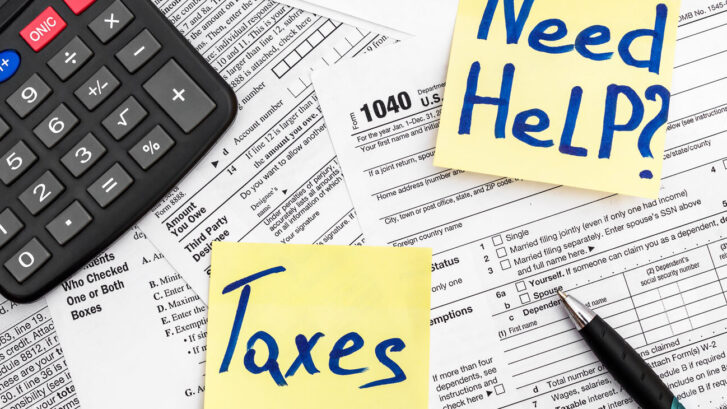The Tax Debt Relief Spam call has been making its rounds, promising assistance with past due tax balances, compliance with past due tax returns, and the elimination of tax debt. The call claims to be from a person named Michelle, who provides a contact number and encourages the recipient to call for a free consultation and to get prequalified for programs. However, the call has been identified as spam and is likely not a legitimate offer. Recipients are advised to be cautious and to avoid giving out any personal information over the phone.
In this article, we cover:
- The details of the Tax Debt Relief Spam Call
- Why the Tax Debt Relief Spam Call is a nuisance
- How to protect yourself from the Tax Debt Relief Spam Call
The details of the Tax Debt Relief Spam Call
Millions of consumers have received a robocall known as the Tax Debt Reduction Spam. The call claims to be from a person named Michelle, who offers assistance with past due tax balances and compliance with past due tax returns. Michelle provides a contact number and assures the recipient that she can help with wage garnishments, bank levies, and tax liens. She encourages the recipient to call her for a free consultation and to get prequalified for programs that can reduce or eliminate tax debt. The spam call has been detected since March 6th, 2023, and the most tracked numbers associated with it are 877-309-1370 and 877-388-2801.
Actual audio of the Tax Debt Relief Spam Call
“Hey, how are you doing? This is Michelle again. I’m reaching out to you one last time about helping you with your past due tax balances. I want to let you know I can help you get that process settled once and for all get you in compliance with any past few returns that you may have. So please give me a call. My number is 877-390-1020. Look I know it’s overwhelming but I really want to help you get the burden off your back, so give me a call today we can do a free consultation and get you prequalified for one of many programs that help reduce and eliminate your tax debt. ANd if you have any wage garnishment, bank levies or tax liens I can help you with that too. So please give me a call today. I look forward to your call, again this is Michelle. You can reach me at 1-877-390-1020. Look forward to hearing from you. Bye.
Why the Tax Debt Relief Spam Call is a nuisance
The Tax Debt Relief Spam Call is a nuisance for several reasons. First and foremost, it is a robocall that interrupts our daily lives and wastes our time. Many of us receive dozens of these calls every week, and they are incredibly frustrating to deal with. The calls often come at inconvenient times, such as during important meetings, family dinners, or while we are trying to relax at home.
In addition, the call preys on people’s fears and vulnerabilities. The idea of owing the IRS money can be intimidating and stressful for many people, and scammers know this. By offering a quick fix to a complex problem, they lure people into giving away their personal information or paying for services that are never delivered.
Lastly, the Tax Debt Relief Spam Call is a nuisance because it undermines our trust in legitimate businesses and organizations. When we receive so many spam calls and emails, it becomes difficult to distinguish between what is genuine and what is a scam. This can lead to us being more skeptical and cautious, which is not a bad thing, but it can also make it harder for us to take advantage of legitimate offers and services that could benefit us.
The Tax Debt Relief Spam Call is a nuisance because it wastes our time, preys on our fears, and undermines our trust in legitimate businesses and organizations. In the next section, we will discuss how to protect ourselves from this and other types of spam calls.
How to protect yourself from the Tax Debt Relief Spam Call
To protect yourself from the Tax Debt Relief Spam Call and other similar scams, there are several steps you can take. First, never give out personal information over the phone to someone you do not know or trust. This includes your social security number, bank account information, and credit card numbers. If someone claims to be from the IRS or another government agency, ask for their name and contact information, and then verify their legitimacy by calling the agency directly.
Second, consider using a call-blocking app or service like YouMail to filter out unwanted calls. These apps can block known spam numbers and identify suspicious calls, making it easier to avoid potential scams.
Finally, be vigilant and stay informed about the latest scam tactics. The IRS and other government agencies regularly issue warnings about new scams and fraud attempts, so make sure to stay up-to-date on the latest developments. By taking these steps and being cautious, you can protect yourself from the Tax Debt Relief Spam Call and other scams, and keep your personal information safe.
Find about more Spam Robocalls at the YouMail Spam Robocalls Guide.
To protect yourself from the Tax Debt Relief Spam Call, download YouMail today.






Tax business relief call which are scam call interrupt my programs and I have to keep renewing my phone in order to move on
Or if you could be a jerk like me, hold until a live operator comes on, then waste as much of their time as possible so they can scam fewer people.
I received one of these calls. I asked an inane philosphical question of th SI (Stupid Intelligence) and it hung up.
Please be careful with these calls and do not respond with your voice. They may be recording it to use with AI later for opening accounts in your name.